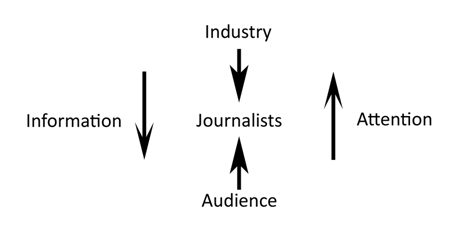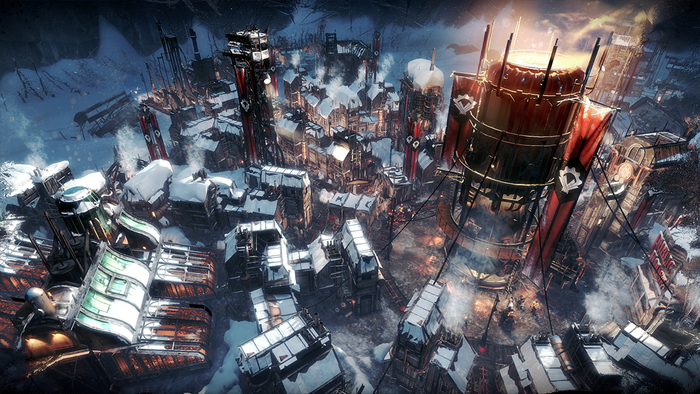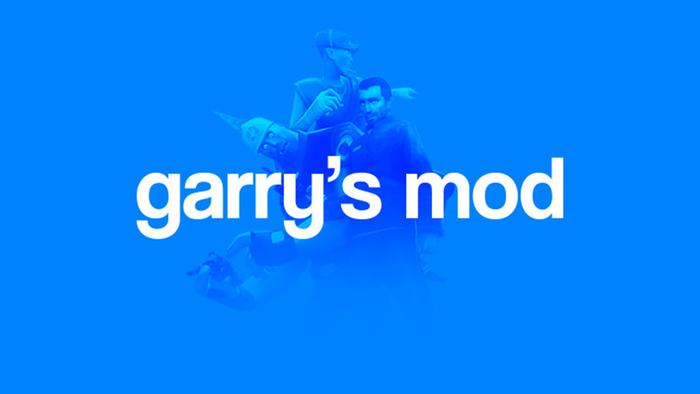
Featured Blog | This community-written post highlights the best of what the game industry has to offer. Read more like it on the Game Developer Blogs.
A perspective on the relationship between publishers and journalists concerning NDAs and embargos.

Can we Jump?!
At last! They are doing it! Final Fantasy Online XIV Online is getting a reboot! Was the interface fixed? Did they find a solution for the copy-pasting of the environment? Do they actually give an explanation of what levequests are now? And the question of all questions: can we jump?![1]
Final Fantasy XIV Online Reboot has hit closed beta. As a renowned games journalist you have been granted a single key to unlock the grand doors to a new and, hopefully, much improved version of the lush lands of Eorzea.
You install the beta-client, click through the necessary wall-of-texts called NDAs, agreed, yes, agreed, log-in, done, create character, go!
The first thing you do: hit spacebar. Nothing. You try again. Still nothing. Is the key binding different? No. Wait, there is still no jump?!
The second thing you do: tweet that they are made up of a bunch of, excuse the French, ass-hats for not implementing jump, again. Frustration!
After a minute or two your bewilderment is broken off by the sound of the phone purring on the table beside you. You reach over and answer, still slightly stricken, "hello?".
"You're fired."[2]
NDAs and Embargos
NDAs, or Non-Disclosure Agreements, are actually more than just walls of text. In relation to computer games they most often contain a message which sounds akin to "any information even remotely related to this intellectual property is confidential and if you spread any confidential information you will pay the price"[3]. This price can range from simply being denied further access to a closed beta, to being added to the black list of a company or to even getting fired by your own employer [4], possibly as a consequence of pressure from the publisher of the game in question [5].
NDAs concern matters of legal practices. If you break the contract, you break the law and you can be held accountable. However, besides these 'hard' (or formal) agreements there are also 'soft' (informal) agreements, called embargos. Now consider the scene sketched above, but replace the NDA with an embargo and the case with revealing a number a screenshots. Getting fired over this would obviously be unlikely, but the possibility of repercussions from the game publisher towards the journalist and the company he is affiliated with can very well be real. The journalist can for example be placed on the black list of the game publisher, resulting in radio silence towards the journalist. But why would game publishers create these formal and informal agreements and enforce them?
To answer this question I will briefly explore further cases, observations and opinions regarding NDAs and embargos and relate these to academic literature concerning the nature of game journalism and the implications these NDAs and embargos have on the practices of game journalists.
The Balance of Flows
The fictional scene illustrated in the introduction displays a number of key relations in the network between the three main actors: the industry (the producers), press and audience (the consumers). A straightforward model to visualize this network is as following: 
This model represents a dynamic relation between the industry, journalists and the audience which can both be appropriated from a bottom-up or top-down perspective. However, the focal point is located at the journalists. As such, journalists can be regarded as the gatekeepers (Carlson, 2009; Niebog and Sihvonen, 2009) who are positioned between the industry and the audience. As gatekeepers the role of the journalists is to determine “what kind of knowledge is passed on to consumers” as well as structure “the ways that gamers are, in turn, able to evaluate that knowledge” (Carlson, 2009, 6.1).
In this model there is a flow of information and attention, or ‘eyeballs’ as it is sometimes referred to in the business. These flows both pass through and by the journalists. For example, firstly regarding the flow of information, publishers will sometimes directly release information about a product without relaying it to the press first. Secondly, the flow of attention is an essential component for both the industry and the journalists since this is a direct source of revenue: the more eyes you have focused on your product, or the more buzz you are able to create with releasing information, the more attention you are able to gather and this can be translated into direct or indirect revenue. This also highlights the counter-clockwise rotational aspect of the model which is based on a system of feedback where the flow of information results in the flow of attention and elicits the desire from both the audience and journalists for, once again, more information since there is a demand. This plays into the concept of fundamental economics regarding demand and supply.
However, between receiving the information from the producers and relaying it to the consumers there is a large grey area of what journalists actually do with the information that has been handed to them. This grey area is influenced by NDAs and embargos (as well as swag or freebies [6] and press trips [7], but these are excluded from the scope of this paper). These hard or soft agreements can have an influence in determining whether the journalist will lean to the black side of the grey zone and follow the ‘orders’ of the industry (“Principles are so 1999.” [8]) or to the white side where the journalist will release information regardless of demands and requests from the industry for the sake of independent journalism and to justly inform the audience (“My interest is not in making sure that Sony has positive news or that the timing of their news is correct, my job only is to inform the readers of news as quickly and accurately as I can.” [9]).
Looking back at the model it can then be said that these agreements also have agency in so far that they have influence over the network and the different flows inside this network, for example when a journalist does not follow a set embargo and releases screenshots before the deadline set by the publisher [10]. The actor network theory, formulated by French sociologist and philosopher Bruno Latour (2005), further explains this agency of nonhuman agents in relation to human agents and how these constitute a processual network. The agency of NDAs and embargos can then be used to explore the influence these arrangements have on the processes in the network as displayed in the model.
A Dried up Flow
A drastic influence an NDA or embargo can have on the network is regarding the information flow from the industry to the journalists. When a journalist breaks an agreement with a producer the producer can decide to cut off this flow of information. This results in the drying up of the flow and consequently results in lesser attention towards the journalists since they have less information to offer. However, the model should not be interpreted as that straightforward. It is a dynamic model of balancing options. All the three actors are involved in this framework of balance, most notably the producers and journalists (since the consumer mostly just want the information, one way or another). Firstly, for example, the producers wish to remain ‘friends’ with the journalists, since after all, the journalists are a main component of directing attention towards the product [11]. However, when these journalists prematurely release information, which was accompanied by an NDA or embargo, it can be damaging for the producers business since it, for example, directly influences their marketing plan to create the maximum amount of buzz. As such they will wish to remain in control of the information flow and implement NDAs and embargos to do so. Secondly, the journalists have to make the choice of whether they wish to adhere to the producers’ desires and demands to secure the (long-term [12]) flow of information, or take the risk of losing this security but winning in (short-term) attention since they took the gamble of releasing virgin information.
Mutually Dependent
Nonetheless, in the end the relationship between game journalist and industry will always be one that is mutually beneficial (Mosco, 1996). Consequently, both the industry and the game journalists will have to nurture this relationship and use both their influence and power to maneuver within the grey area of NDAs and embargos and find an appropriate balance between the black and white edges. If they don’t, their actions might end up being mutually detrimental [13]. People might get fired.
Literature
- Carlson, R. (2009). "Too Human versus the enthusiast press: Video Game Journalists as Mediators of Commodity Value." Transformative Works and Cultures 2(1): http://journal.transformativeworks.org/index.php/twc/article/view/98/93.
- Latour, B. (2005). Reassembling the Social, An Introduction to Actor-Network-Theory. Oxford: Oxford University Press.
- Nieborg, D. B. and Tanja Sihvonen (2009). “The new gatekeepers? On the occupational ideology of game journalism.” DiGRA 2009 - Breaking New Ground: Innovation in Games, Play, Practice and Theory. London: Brunel University.
- Mosco, V. (1996). The Political Economy of Communication: Rethinking and Renewal. London: Sage.
Notes
[1] These are faults of the game that were addressed consistently throughout reports. For example MikeB from Zam.com addressed these issues in these videos: E3 2010: Final Fantasy XIV - Producer Hiromichi Tanaka Interview and Final Fantasy XIV - Copy Pasta'd Terrain.
[2] This example should not be taken as is, but as a fictional case to support the example.
[3] Gamerlaw offers a more extensive explanation of what NDAs exactly entail: The problems with Non Disclosure Agreements and games.
[4] An example of an employee getting fired for breaking an NDA is the case of an Apple employee prematurely releasing valuable information about the iPad. For more information visit: Steve Wozniak On Apple Security, Employee Termination, and Gray Powell.
[5] For example the, still unclear, case of a Gamespot editor getting fired due to Eidos not being pleased with the editor’s review and threatening to pull its ad campaign: Gamespot Editor Fired Over Kane & Lynch Review?.
[6] A good read on the influence of freebies on the independence of game journalism is Ethics in Journalism, 6th Edition by professor of journalism Ron F. Smith (2008).
[7] More about game journalism and press trips: Geeks Have All The Fun.
[8] As David Nieborg mentions in a reply (7-8-2009 14:08) on his article on Bashers.nl: Geheimhoudingsplicht voor Gamepers gaat wel erg ver (Dutch).
[9] In a dispute between Kotaku’s Brian Crecente and Dave Karraker from Sony Computer Entertainment this was Crecente’s retort to Sony cancelling a number of invitations for Kotaku to conduct interviews and attend an event: Sony Blackballs Kotaky Updated.
[10] For example: LittleBigPlanet 2 screens hit ‘net.
[11] David Tractenberg, President of Traction Public Relations, for example states that “An NDA is legally binding and you could certainly go after a company that breaks one. However, we never have nor would we. Suing the press because someone jumped the gun is just a bad idea. Instead we stop giving them news early, but that doesn't mean we stop talking to them or inviting them to functions. In the end, this is a mutually beneficial relationship. They rely on us for news of games their readers will like and we rely on them to get the word out. If they betray our trust, we want to find out what happened and see if the relationship can be repaired more than anything”. From: Time's Up: Video Game Embargos.
[12] “By honoring the terms of the NDA, we'll have a better relationship with SE - far better - than sites that choose not to honor it. So yes, in the long run, we will be granted more privileged info and, yes, more traffic.” From: FFXIV forum on Zam.com.
[13] An example of an act of possible poor balance with applying an embargo is the case of Eidos putting an embargo on negative scores for the game Batman: Arkham Asylum. However, if the score was higher than 90/100 and the game was placed on the cover of the used medium then you were allowed to bypass the embargo. Naturally, when the first review appeared months before release in the UK magazine Game Master with a score of 96 both Eidos and Game Master were put in serious doubt regarding their neutrality. A quick search on Google.com will result in a plethora of results of bloggers and websites shouting corruption, for example Eidos Seek 90% Score & Cover For Arkham Asylum In Exchange For Early Review and Batman: Arkham Asylum is the Cure For Cancer and AIDS.
Read more about:
Featured BlogsAbout the Author(s)
You May Also Like







